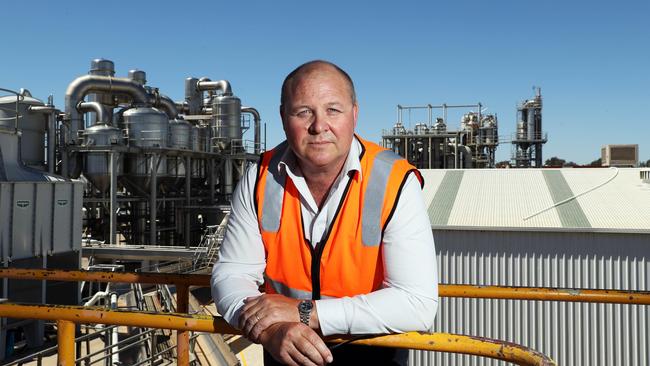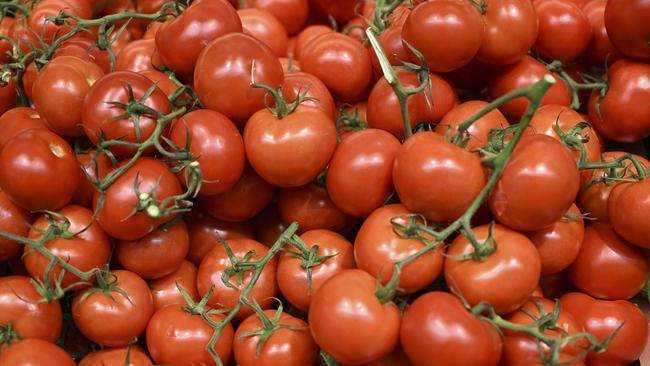Gas price surge place regional processor at risk, threatening jobs, and local economy
The clock is ticking for governments to fix the gas price crisis, with one of regional Australia’s largest food processors warning it could leave the country if current levels remain.
The clock is ticking for the state and federal governments to fix the national gas price crisis, with one of regional Australia’s largest food processors warning it could leave the country if they remained at current levels.
The news comes after the Australian Competition and Consumer Commission revealed large manufacturers were being offered annual gas contracts for 2023 at rates up to five times more than last year.
Kagome Australia chief executive Jason Fritsch said he had informed the company’s board that a decision would need to be made early next year as to whether it was viable to retain its Echuca operation – where it employs the equivalent of 400 full-time staff when fully processing.
The company spends about $100 million in Australia a year on things such as utilities, raw materials and labour, with about $75 million of that injected into regional Victorian and southern NSW.
“The company cannot and will not wait until November 2023 to decide what we are going to be doing in 2024. We have set up a risk model where we make decisions 12 months out and we cannot put ourselves in a position where we have nowhere to go and if gas is still $30 a gigajoule,” he said.

Mr Fritsch said Kagome, a global company with a presence in Europe, Asia and America, was totally committed to Australia while it offered a fair playing field.
“If global operations start making losses somewhere you move to where it is profitable. Margins are tight in the food industry and the federal and state governments must decide if they want food processors and manufacturers in Australia,” he said.
Kagome processes about 200,000 tonnes of tomatoes and a combined 50,000 tonnes of carrots, apples and beetroot annually that is converted into 70,000 tonnes of concentrated pastes and dice for popular brands such as Dolmio, Masterfoods and Leggos.
Of the 200,000 tonnes of tomatoes, it grows about 60,000 tonnes on its own paddocks and contracts local growers to provide the rest.
The energy-exposed processor’s 2022 gas bill is $3.2 million. It signed a contract in January this year for 2023 for $4.2 million, or $8.20 a gigajoule. However, that same contract if signed today would be no less than $9 million, or between $23 and $30 a gigajoule in the east-coast market.
Mr Fritsch said most manufacturers and processors would not be able to pass on or absorb the spiralling gas prices.
“We can’t pass those costs on to our customers because they find it almost impossible to pass costs on to their customers, the big supermarkets,” he said.
“And we cannot pay less for raw materials because we cannot do that to our growers. Their fertiliser, seed, chemicals and diesel costs have at least doubled in the past 12 months and for them to keep operating and make a fair and reasonable margin they need to be paid more for their product, not less, or they simply will not do it.”
Global demand for Australian gas has gone through the roof after Russian gas supplies to international markets were shut off following its invasion of Ukraine. The laws of supply and demand have driven up export prices for Australian gas and domestic gas users are being charged the global price rate.

Mr Fritsch called on the state and federal governments to solve the situation with a domestic reservation policy that capped domestic prices at about $10 a gigajoule – which would still allow gas producers a margin of 30 to 40 per cent. The Western Australia government has already introduced a cap.
Victorian Chamber of Commerce and Industry CEO Paul Guerra agreed that Australian governments needed to not only guarantee an upper limit of gas price but also a guaranteed continuity of supply to remain competitive.
“If gas supply and price continues to fluctuate then businesses will become uncompetitive and if they cannot get certainty they will move elsewhere or close,” he said.
“This is one of those moments where we have to support our major businesses, who also need to be assisted in transitioning to renewables as a way to reduce significant energy costs”.
Energy prices have emerged as a major issue for the Albanese government, which has flagged an unprecedented move to intervene in the energy market in an attempt to reduce power bills. However, Queensland Resources Council boss Ian Macfarlane said the move would be “catastrophic” and harm Australia’s reputation as a safe place to invest.




